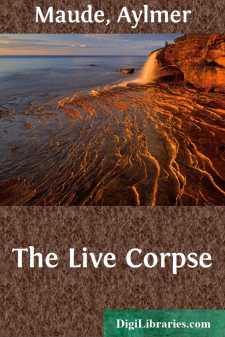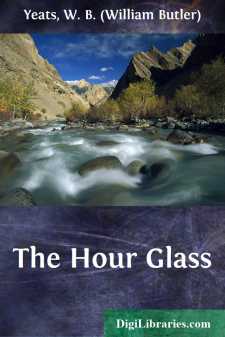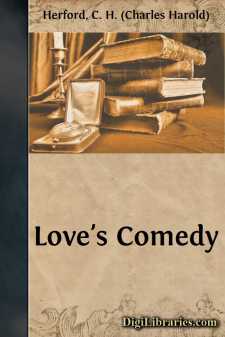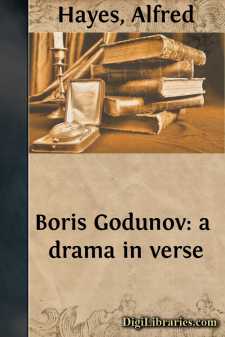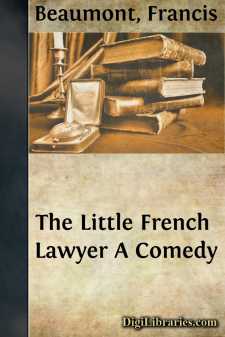Drama Books
Sort by:
by:
Henrik Ibsen
ACT FIRST. (A room at Ostrat. Through an open door in the back, the Banquet Hall is seen in faint moonlight, which shines fitfully through a deep bow-window in the opposite wall. To the right, an entrance- door; further forward, a curtained window. On the left, a door leading to the inner rooms; further forward a large, open fireplace, which casts a glow over the room. It is a stormy evening.) (BIORN...
more...
by:
Aylmer Maude
Scene 1 Protásov's flat in Moscow. The scene represents a small dining-room. Anna Pávlovna, a stout grey-haired lady, tightly laced, is sitting alone at the tea-table on which is a samovár. Enter nurse, carrying a teapot. NURSE. May I have a little hot water, ma'am? ANNA PÁVLOVNA. Yes. How's Baby? NURSE. He's restless.… There's nothing worse than for a lady to nurse her...
more...
SCENE: A large room with a door at the back and another at the side opening to an inner room. A desk and a chair in the middle. An hour-glass on a bracket near the door. A creepy stool near it. Some benches. The WISE MAN sitting at his desk. WISE MAN [turning over the pages of a book]. Where is that passage I am to explain to my pupils to-day? Here it is, and the book says that it was written by a...
more...
INTRODUCTION* Koerlighedens Komedie was published at Christiania in 1862. The polite world—so far as such a thing existed at the time in the Northern capital—received it with an outburst of indignation now entirely easy to understand. It has indeed faults enough. The character-drawing is often crude, the action, though full of effective by-play, extremely slight, and the sensational climax has...
more...
SCENE: Judge Dunfumy's Court. PERSONS: Judge Dunfumy, Officer Simpson and another, Jemima Flapcakes, Cliff Mullins, John Barnes, two lawyers, a clerk, a pretty girl and her escort. SETTING: Usual court-room arrangement, except that there is a large red arrow pointing off-stage left,...
more...
by:
Lady Gregory
ACT I Scene: A room in the King's house at Burren.Large window at back with deep window seat.Doors right and left. A small table and somechairs. Dall Glic: (Coming in with tray, which he putson table. Goes back to door.) You can come in,King. There is no one here. King: (Coming in.) That's very good. I wasin dread the Queen might be in it. Dall Glic: It is a good thought I had bringingit in...
more...
by:
Bernard Shaw
AUGUSTUS DOES HIS BIT The Mayor's parlor in the Town Hall of Little Pifflington. Lord Augustus Highcastle, a distinguished member of the governing class, in the uniform of a colonel, and very well preserved at forty-five, is comfortably seated at a writing-table with his heels on it, reading The Morning Post. The door faces him, a little to his left, at the other side of the room. The window is...
more...
by:
Alfred Hayes
PALACE OF THE KREMLIN (FEBRUARY 20th, A.D. 1598) PRINCE SHUISKY and VOROTINSKY VOROTINSKY. To keep the city's peace, that is the taskEntrusted to us twain, but you forsoothHave little need to watch; Moscow is empty;The people to the Monastery have flockedAfter the patriarch. What thinkest thou?How will this trouble end? SHUISKY. How will it end?That is not hard to tell. A little moreThe multitude...
more...
COSTUMES. The simplicity of the costuming as well as of the stage setting makes the play an easy one for amateurs to produce. The dress of the four school girls should be as modern as possible. Their hair should be elaborately arranged. Hippolyta should wear the dress of an Amazon, armor if possible, or a short skirt, sandals laced high with crossed strings, waist to match the skirt, a crown, and a...
more...
by:
Francis Beaumont
Actus Primus. Scena Prima. Enter Dinant, a[n]d Cleremont. Din. Disswade me not. Clere. It will breed a brawl. Din. I care not, I wear a Sword. Cler. And wear discretion with it,Or cast it off, let that direct your arm,'Tis madness else, not valour, and more baseThan to receive a wrong. Din. Why would you have meSit down with a disgrace, and thank the doer?We are not Stoicks, and that passive...
more...



